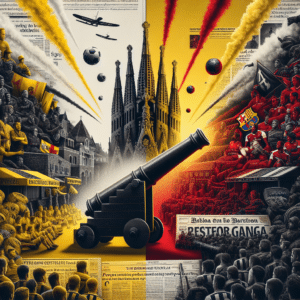OpenAI, the artificial intelligence startup, is facing a potential legal battle as professional writers and media outlets argue that its AI chatbots, such as ChatGPT, are violating copyright and fair use laws. OpenAI has revealed that it requires access to copyrighted materials to develop tools like ChatGPT, which has led to discussions with major media companies, including CNN, Fox Corp., and Time, about licensing their work.
OpenAI’s Need for Copyrighted Material
OpenAI has openly acknowledged that it would be impossible to create AI models like ChatGPT without utilizing copyrighted works. The development of AI tools heavily relies on accessing and using copyrighted material. The AI startup is now in talks with CNN, Fox Corp., and Time to secure licenses for their content, a move that reflects the growing importance of such licensing agreements in the development of AI technologies.
The Threat of a Copyright Crackdown
However, the ban on using news articles and books to train chatbots, which some outlets and authors are advocating for, would have significant consequences. OpenAI warns that such a crackdown could make it nearly impossible to create AI services like ChatGPT. Restricting access to copyrighted materials would hinder the ability of AI models to generate high-quality responses and limit their usefulness.
New York Times Lawsuit and Implications
The New York Times has recently filed a lawsuit against OpenAI, adding to the legal challenges faced by the AI developer. This lawsuit could have far-reaching implications for the future of machine intelligence as it highlights the ongoing debate surrounding the fair use of copyrighted works. ChatGPT-maker, OpenAI, is now preparing to defend its position and navigate the legal complexities surrounding the use of copyrighted material in AI development.
Plagiarism Concerns and AI
Generative AI models, like Midjourney and Dall-E-3, have raised concerns about their ability to create near replicas of trademarked characters with simple text prompts, potentially leading to instances of plagiarism. Content creators are fighting back against the AI, further highlighting the challenges and ethical considerations that arise from the development and use of AI technologies.
- OpenAI engages in talks with major media companies for content licensing
- OpenAI emphasizes the need for copyrighted material to develop AI tools
- Ban on using news and books to train chatbots could hinder AI services
- The New York Times files lawsuit against OpenAI
- Debate over fair use of copyrighted works in AI development
- Concerns about AI models generating replicas of trademarked characters
- Content creators fighting back against AI’s potential plagiarism
“It would be impossible to train today’s leading AI models without using copyrighted materials.” – OpenAI




Leave a Reply